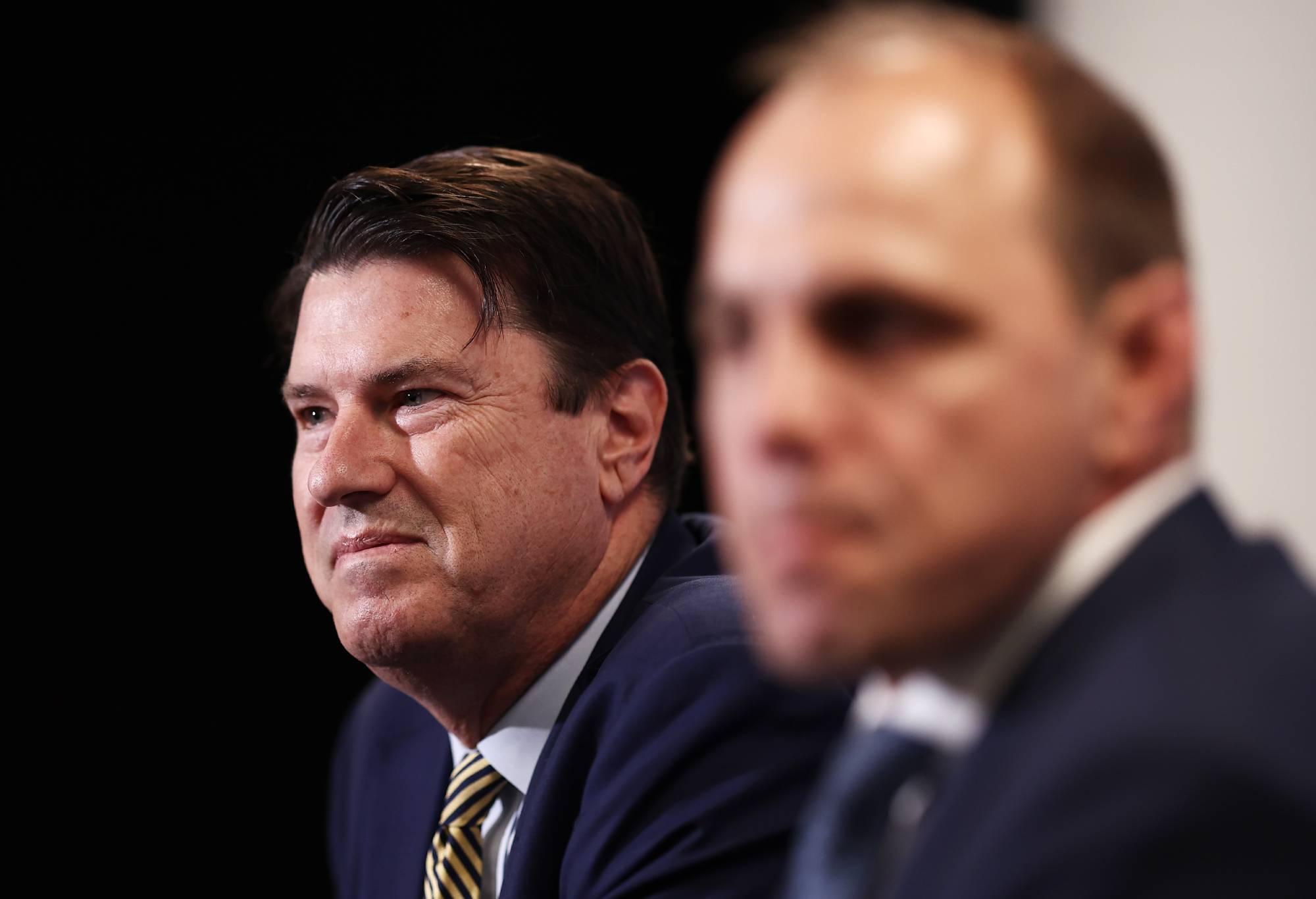In a decision that could have huge ramifications for the long-term health of Australian rugby, World Rugby looks set to award the 2027 World Cup broadcast rights to Nine Entertainment and Stan Sport.
Although it had been expected that the next Australian broadcast rights deal would include the home World Cup, secret meetings held in Paris during the Olympics over the last month have influenced the decision for the showpiece event and the next domestic rights deal being sold separately, The Roar can reveal.
While the deal has yet to be inked, it’s believed Nine Entertainment officials shook hands with World Rugby boss Alan Gilpin at the Olympics to broadcast the next World Cup.
Without the prized World Cup on offer with the next broadcast deal, it’s unlikely News Corp, who for now part own Foxtel, will be lured back to the negotiating table to broadcast Super Rugby, therefore lessening the amount Nine would have to pay.
Rugby Australia boss Phil Waugh was also in Paris during the Olympics as he witnessed the nation’s men’s and women’s sevens teams fail to bring home a medal despite making the last four.

World Rugby CEO Alan Gilpin is believed to have given the green light for Nine Entertainment and Stan to broadcast the 2027 World Cup. (Photo by Scott Taetsch – World Rugby/World Rugby via Getty Images)
How much influence Waugh had remains to be seen, with World Rugby deciding to sell off the broadcast package of the next World Cup separately rather than package it together with the local deal.
It’s believed that Nine Entertainment and Stan were only interested in going after the next broadcast deal, which runs from 2026-2030, if they were guaranteed to show the World Cup.
The decision threatens to dampen the competitive tension Rugby Australia needs to get a major uplift on the$29 million-per-year deal it currently has in place with Nine Entertainment and Stan to broadcast Super Rugby and Wallabies fixtures. The current deal expires at the end of 2025.
Fortunately, a saving grace for the cash-strapped code might have already been set in stone.
The Roar understands former RA chairman Hamish McLennan helped ensure the cash-strapped governing body would be given around $100m from World Rugby for hosting the men’s World Cup.

Former Rugby Australia chairman Hamish McLennan is believed to have ensured the game gets a guaranteed $100m cash injection from World Rugby for hosting the 2027 World Cup. (Photo by Matt King/Getty Images for Rugby Australia)
The massive injection of capital could be the difference between the game thriving or falling under, especially given the insecurity with their next broadcast deal given TV deals have become a game within themselves over the past two decades.
Already, it’s understood RA has used an estimated three quarters of its $80m loan facility from Pacific Equity Partners secured late last year.
But in a day and age where eyeballs matter, rugby has dramatically fallen by the wayside as results – and victories – have dwindled.
Indeed, RA’s $29m per annum deal pales in comparison to the $400m the NRL is receiving. It comes after the Wallabies’ slide down the World Rugby rankings, where the national men’s team is languishing in ninth spot and will drop to tenth should they lose their next two fixtures to Los Pumas in Argentina.
The Roar understands that RA must receive a $15m uplift per annum to cover the rising costs associated with having high performance systems in the men’s and women’s fifteens and sevens competitions.
However, given the revelation the World Cup will be sold separately, and RA will have one less Super Rugby franchise from 2026 following the Melbourne Rebels’ demise and therefore less product to sell, it’s unlikely. That said, industry insiders have told The Roar Nine Entertainment and Stan want quality, not quantity.
Nonetheless, it could explain why RA has been desperately trying to add more product to sell going forward, especially given their financial woes.

The 2027 men’s World Cup will likely be broadcast on Nine and Stan Entertainment. (Photo by Paul Kane/Getty Images)
Although Stan Sport’s streaming platform relies on rugby as its flagship offering, Super Rugby isn’t anywhere near the must-watch domestic competition it once was when full houses at the Sydney Football Stadium and Bruce Stadium were regular.
It’s, in part, why News Corp is unlikely to chase the rugby rights if the World Cup is not up for grabs.
Already Nine Entertainment and Stan got the broadcast rights of the 2025 British and Irish Lions at a bargain price.
It came after the broadcast company took advantage of its 2020 deal with RA, where they accepted a two-year extension that was in its favour.






